EMILY DICKINSON MUSEUM ANNOUNCES REOPENING OF THE EVERGREENS ON MARCH 1, 2024
The Evergreens, the historic Dickinson family house next to the Homestead, will reopen for public visitation for the first time since 2019.
For Immediate Release
Contact: Patrick Fecher
pfecher@emilydickinsonmuseum.org
(Wednesday, January 31, 2024, AMHERST, MA) – Today the Emily Dickinson Museum announces the reopening of The Evergreens, an integral component of the American literary site interpreting and celebrating Emily Dickinson’s life and legacy. Located just west of the Homestead, The Evergreens was built for the poet’s brother Austin and his family in 1856. The lives of the Dickinson families at the Homestead and The Evergreens were closely linked, both in their daily conduct and in the private lives that unfolded in the houses. These connections had a profound impact on Emily Dickinson’s poetry and, later, on the posthumous publication of her verse and the preservation of her legacy. The Evergreens remains largely unaltered since the time when Emily Dickinson’s family lived here, a time capsule reflecting the wide-ranging aesthetic and intellectual interests of the entire family.
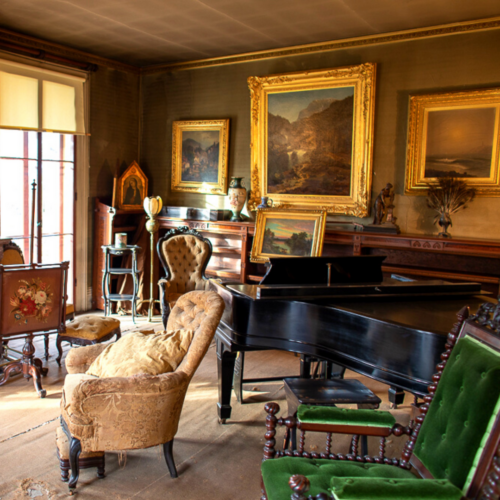 Closed since 2019, the Museum recently completed a multi-year preservation effort at The Evergreens, aimed at improving environmental conditions for objects in its recently documented collection, and reducing energy consumption. Supported by grants from the National Endowment for the Humanities and the Massachusetts Cultural Facilities Fund, the project focused first on reducing energy consumption through building envelope repairs, new insulation, and light filtration. It continued with installation of a museum-grade HVAC system to maintain temperature and relative humidity in ranges that promote the preservation of sensitive collections objects.
Closed since 2019, the Museum recently completed a multi-year preservation effort at The Evergreens, aimed at improving environmental conditions for objects in its recently documented collection, and reducing energy consumption. Supported by grants from the National Endowment for the Humanities and the Massachusetts Cultural Facilities Fund, the project focused first on reducing energy consumption through building envelope repairs, new insulation, and light filtration. It continued with installation of a museum-grade HVAC system to maintain temperature and relative humidity in ranges that promote the preservation of sensitive collections objects.
Jane and Robert Keiter Family Executive Director Jane Wald says, “We are so pleased that this important project has reached a successful conclusion. The Evergreens is an extraordinary house, unusually preserved, and steeped in the histories of the Dickinson family and the town of Amherst. That it has been little changed since the end of the nineteenth century and remains full of Dickinson family possessions was a distinct choice by family members and heirs, but one that led to decades of environmental conditions unfriendly to collections. Improvements to the building envelope and an effective heating and cooling system are a significant contribution to the preservation of the Dickinson home, history, and material legacy.”
The Evergreens is thought to have been designed by prolific Northampton architect William Fenno Pratt — the house is one of the earliest unchanged examples of Italianate domestic architecture in Amherst. Under Susan Dickinson’s direction, The Evergreens quickly became a center of the town’s social and cultural life, with notable visitors such as Ralph Waldo Emerson, Wendell Philips, Harriet Beecher Stowe, and Frederick Law Olmsted.
Austin and Susan Dickinson lived at The Evergreens until their respective deaths in 1895 and 1913. Their only surviving child, Martha Dickinson Bianchi, edited numerous collections of her aunt’s poetry and authored biographical works about her in the 1920s and 1930s. She continued to live in the house, and preserved it without change, until her own death in 1943. Her heirs – co-editor Alfred Leete Hampson, and later his widow, Mary Landis Hampson – recognized the tremendous historical and literary significance of a site left completely intact and sought ways to ensure the preservation of The Evergreens as a cultural resource. The house is still completely furnished with Dickinson family furniture, household accouterments, and decor selected and displayed by the family during the nineteenth century.
“Reintroducing The Evergreens to our interpretive program has been a long-awaited step,” says Senior Director of Programs Brooke Steinhauser. “The condition of the house is uniquely evocative of the lives lived there. We can share more fully with visitors the stories not just of the poet’s daily inspiration stemming from these family relationships, but also the remarkable way her poetry came to the world posthumously and the motivations of the extraordinary people who recognized her genius and dedicated their lives to sharing it.”
During the past few years, there has been renewed and growing interest in Emily Dickinson and her social circle, especially her sister-in-law Susan Dickinson. The Museum expects the reopening of The Evergreens to attract visitors from around the globe to visit this one-of-a-kind historic site in Amherst, MA.
Beginning March 1, the Emily Dickinson Museum will be open from Wednesday-Sunday, 10am-5pm ET. Admission tickets provide access to both the Homestead and The Evergreens. Visitors are encouraged to purchase their tickets in advance: EmilyDickinsonMuseum.org/Visit/
For press-approved images:
emilydickinsonmuseum.widencollective.com/portals/hhdfvat3/EvergreensReopening2024
ABOUT THE EMILY DICKINSON MUSEUM
The Emily Dickinson Museum is dedicated to sparking the imagination by amplifying Emily Dickinson’s revolutionary poetic voice from the place she called home.
The Museum comprises two historic houses—the Dickinson Homestead and The Evergreens in the center of Amherst, Mass.—that were home to the poet (1830-1886) and members of her immediate family during the nineteenth and early twentieth centuries. The Museum was created in 2003 when the two houses merged under the ownership of the Trustees of Amherst College. The Museum is overseen by a separate Board of Governors and is responsible for raising its own operating, program, and capital funds.
SUPPORT FROM
The National Endowment for the Humanities (NEH) is an independent federal agency created in 1965. It is one of the largest funders of humanities programs in the United States.
The Massachusetts Cultural Facilities Fund (CFF) is an initiative of the state of Massachusetts that makes grants to support the acquisition, design, repair, rehabilitation, renovation, expansion, or construction of nonprofit cultural facilities statewide.
 Omotara James is a writer, editor and visual artist. She is the author of the chapbook Daughter Tongue, selected by African Poetry Book Fund, in collaboration with Akashic Books, for the 2018 New Generation African Poets Box Set. A two-time Pushcart Prize nominee, she is a recipient of the 2019 92Y Discovery Poetry Prize. She earned her BA from Hofstra University and received her MFA from New York University. Her poems have appeared in Poetry Magazine, The Paris Review, The Academy of American Poets and elsewhere. She is a fellow of Lambda Literary and Cave Canem Foundation. Born in Britain, she is the daughter of Nigerian and Trinidadian immigrants and currently lives in New York City. omotarajames.com
Omotara James is a writer, editor and visual artist. She is the author of the chapbook Daughter Tongue, selected by African Poetry Book Fund, in collaboration with Akashic Books, for the 2018 New Generation African Poets Box Set. A two-time Pushcart Prize nominee, she is a recipient of the 2019 92Y Discovery Poetry Prize. She earned her BA from Hofstra University and received her MFA from New York University. Her poems have appeared in Poetry Magazine, The Paris Review, The Academy of American Poets and elsewhere. She is a fellow of Lambda Literary and Cave Canem Foundation. Born in Britain, she is the daughter of Nigerian and Trinidadian immigrants and currently lives in New York City. omotarajames.com Willie Lee Kinard III is a Black nonbinary poet, designer, educator & musician forged in Newberry, South Carolina. Holding an MFA in Creative Writing from the University of Pittsburgh, their musings include gospel surrealism, Black romance & superstition. A Fellow of The Watering Hole & a Pushcart Prize nominee, their written work appears (or will soon) in Obsidian, Poem-a-Day, Best New Poets, The Rumpus, & elsewhere. williekinard.com
Willie Lee Kinard III is a Black nonbinary poet, designer, educator & musician forged in Newberry, South Carolina. Holding an MFA in Creative Writing from the University of Pittsburgh, their musings include gospel surrealism, Black romance & superstition. A Fellow of The Watering Hole & a Pushcart Prize nominee, their written work appears (or will soon) in Obsidian, Poem-a-Day, Best New Poets, The Rumpus, & elsewhere. williekinard.com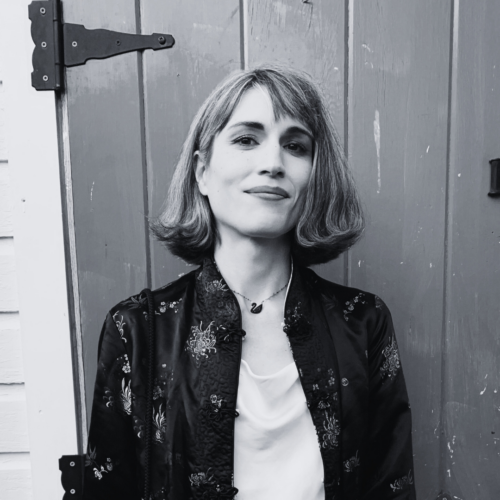 Joshua Jennifer Espinoza is a transsexual poet. Her work has been featured in Poetry Magazine, The American Poetry Review, Split Lip Magazine, Gulf Coast Journal, The Southeast Review, MoMA Magazine, and elsewhere. She is the author of I’m Alive / It Hurts / I Love It (2019) and THERE SHOULD BE FLOWERS (2016). She holds an MFA in poetry from UC Riverside and is currently a professor of creative writing. Jennifer lives in California with her wife, poet/essayist Eileen Elizabeth, and their cat and dog. joshuajenniferespinoza.com
Joshua Jennifer Espinoza is a transsexual poet. Her work has been featured in Poetry Magazine, The American Poetry Review, Split Lip Magazine, Gulf Coast Journal, The Southeast Review, MoMA Magazine, and elsewhere. She is the author of I’m Alive / It Hurts / I Love It (2019) and THERE SHOULD BE FLOWERS (2016). She holds an MFA in poetry from UC Riverside and is currently a professor of creative writing. Jennifer lives in California with her wife, poet/essayist Eileen Elizabeth, and their cat and dog. joshuajenniferespinoza.com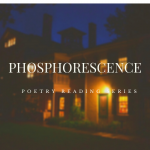
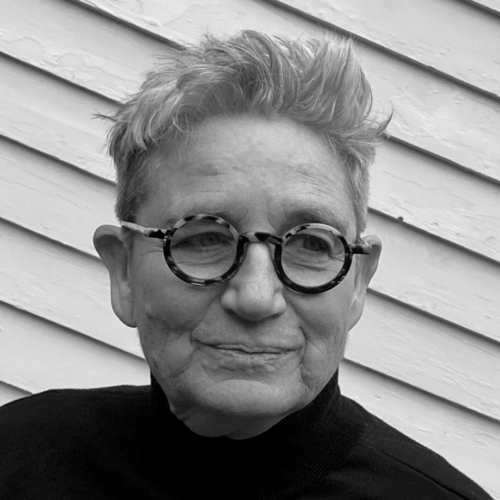


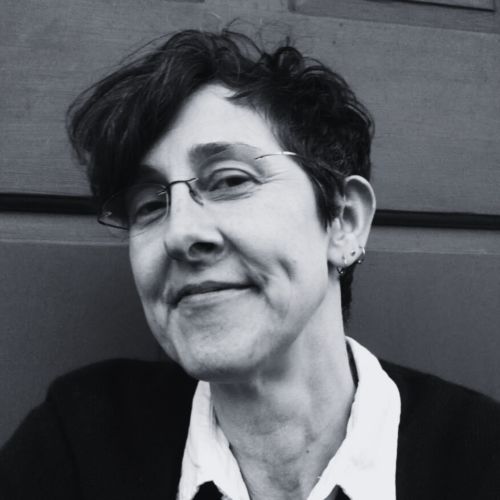
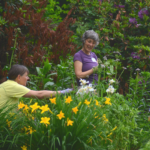
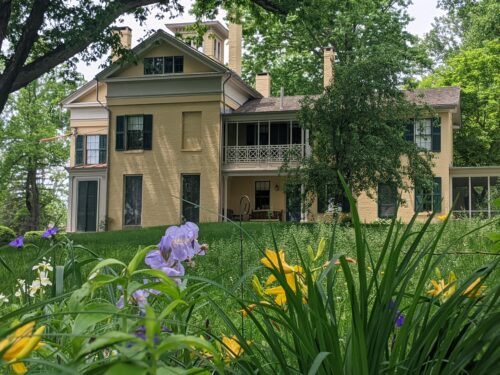
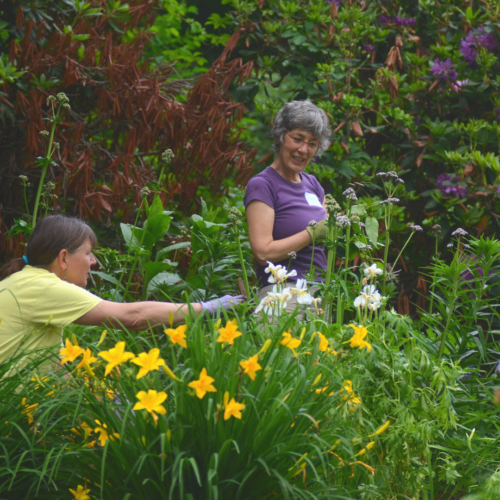 Marta McDowell teaches landscape history and horticulture at the New York Botanical Garden and is a popular lecturer and writer. Her latest book is Gardening Can Be Murder, about the horticultural connections to crime fiction. Timber Press also published Unearthing The Secret Garden, Emily Dickinson’s Gardening Life, The World of Laura Ingalls Wilder, New York Times-bestselling All the Presidents’ Gardens, and Beatrix Potter’s Gardening Life, now in its ninth printing. She was the 2019 recipient of the Garden Club of America’s Sarah Chapman Francis Medal for outstanding literary achievement.
Marta McDowell teaches landscape history and horticulture at the New York Botanical Garden and is a popular lecturer and writer. Her latest book is Gardening Can Be Murder, about the horticultural connections to crime fiction. Timber Press also published Unearthing The Secret Garden, Emily Dickinson’s Gardening Life, The World of Laura Ingalls Wilder, New York Times-bestselling All the Presidents’ Gardens, and Beatrix Potter’s Gardening Life, now in its ninth printing. She was the 2019 recipient of the Garden Club of America’s Sarah Chapman Francis Medal for outstanding literary achievement. Richard Michelson’s poetry collections include Sleeping as Fast as I Can (Slant Books), More Money than God (U of Pittsburgh Press), Battles and Lullabies (U of Illinois), Tap Dancing for the Relatives (U of Florida) and two limited edition Fine Press collaborations with the artist Leonard Baskin’s Gehenna Press. Michelson wrote the libretto for the off-Broadway music-theater piece, Dear Edvard, and his many children’s books have been named among the 10 Best Books of the Year by The New York Times, Publishers Weekly, and The New Yorker; and among the 12 Best Books of the Decade by Amazon.com. Michelson has received a National Jewish Book Award, and two Sydney Taylor Gold Medals from the Association of Jewish Libraries. He has received two Massachusetts Cultural Council Fellowships, and his work was chosen to “highlight the literary culture and history of Massachusetts” at the 2018 Library of Congress National Book Festival. In 2019 Michelson became the sixth recipient of the Samuel Minot Jones Award for Literary Achievement. Michelson’s poems have appeared in The Harvard Review, The Massachusetts Review, The Common and many other journals. A native of East New York, Brooklyn, Michelson served two terms as Poet Laureate of Northampton, Massachusetts. He is the owner of R. Michelson Galleries, and the host of Northampton Poetry Radio.
Richard Michelson’s poetry collections include Sleeping as Fast as I Can (Slant Books), More Money than God (U of Pittsburgh Press), Battles and Lullabies (U of Illinois), Tap Dancing for the Relatives (U of Florida) and two limited edition Fine Press collaborations with the artist Leonard Baskin’s Gehenna Press. Michelson wrote the libretto for the off-Broadway music-theater piece, Dear Edvard, and his many children’s books have been named among the 10 Best Books of the Year by The New York Times, Publishers Weekly, and The New Yorker; and among the 12 Best Books of the Decade by Amazon.com. Michelson has received a National Jewish Book Award, and two Sydney Taylor Gold Medals from the Association of Jewish Libraries. He has received two Massachusetts Cultural Council Fellowships, and his work was chosen to “highlight the literary culture and history of Massachusetts” at the 2018 Library of Congress National Book Festival. In 2019 Michelson became the sixth recipient of the Samuel Minot Jones Award for Literary Achievement. Michelson’s poems have appeared in The Harvard Review, The Massachusetts Review, The Common and many other journals. A native of East New York, Brooklyn, Michelson served two terms as Poet Laureate of Northampton, Massachusetts. He is the owner of R. Michelson Galleries, and the host of Northampton Poetry Radio.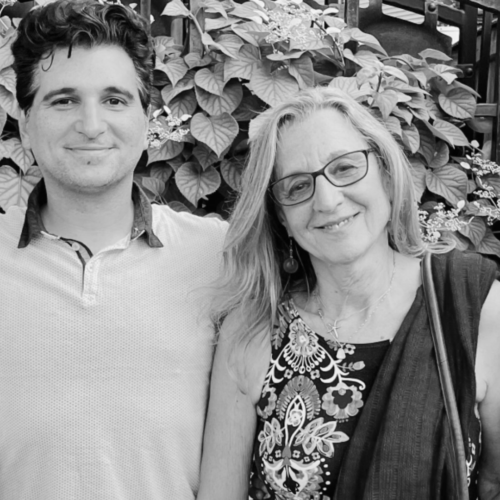
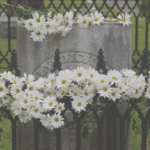
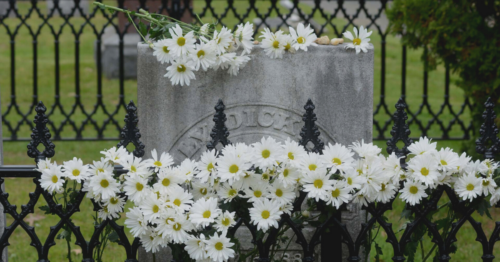
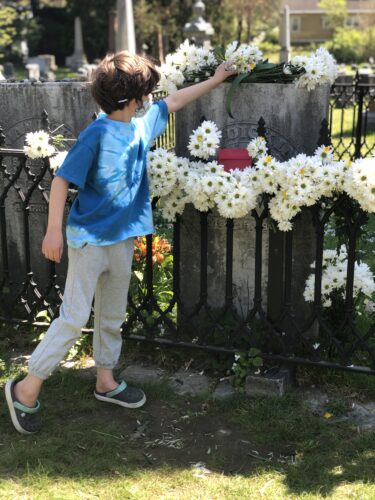 A Daisy for Dickinson:
A Daisy for Dickinson: 


 In-person tickets are now sold out. Please register to join us online!
In-person tickets are now sold out. Please register to join us online!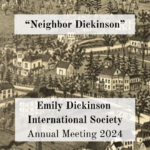
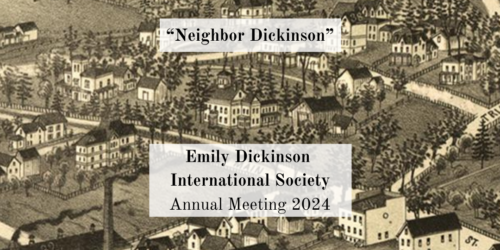
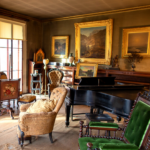
 Closed since 2019, the Museum recently completed a multi-year preservation effort at The Evergreens, aimed at improving environmental conditions for objects in its recently documented collection, and reducing energy consumption. Supported by grants from the National Endowment for the Humanities and the Massachusetts Cultural Facilities Fund, the project focused first on reducing energy consumption through building envelope repairs, new insulation, and light filtration. It continued with installation of a museum-grade HVAC system to maintain temperature and relative humidity in ranges that promote the preservation of sensitive collections objects.
Closed since 2019, the Museum recently completed a multi-year preservation effort at The Evergreens, aimed at improving environmental conditions for objects in its recently documented collection, and reducing energy consumption. Supported by grants from the National Endowment for the Humanities and the Massachusetts Cultural Facilities Fund, the project focused first on reducing energy consumption through building envelope repairs, new insulation, and light filtration. It continued with installation of a museum-grade HVAC system to maintain temperature and relative humidity in ranges that promote the preservation of sensitive collections objects.